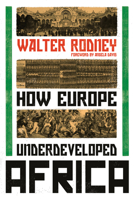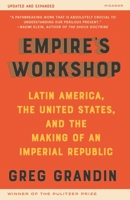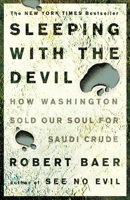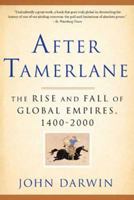Overthrow: America's Century of Regime Change from Hawaii to Iraq
Select Format
Select Condition 
You Might Also Enjoy
Book Overview
Stephen Kinzer's Overthrow provides a fast-paced narrative history of the coups, revolutions, and invasions by which the United States has toppled fourteen foreign governments -- not always to its own benefit
"Regime change" did not begin with the administration of George W. Bush, but has been an integral part of U.S. foreign policy for more than one hundred years. Starting with the overthrow of the Hawaiian monarchy in 1893 and continuing through the Spanish-American War and the Cold War and into our own time, the United States has not hesitated to overthrow governments that stood in the way of its political and economic goals. The invasion of Iraq in 2003 is the latest, though perhaps not the last, example of the dangers inherent in these operations. In Overthrow, Stephen Kinzer tells the stories of the audacious politicians, spies, military commanders, and business executives who took it upon themselves to depose monarchs, presidents, and prime ministers. He also shows that the U.S. government has often pursued these operations without understanding the countries involved; as a result, many of them have had disastrous long-term consequences. In a compelling and provocative history that takes readers to fourteen countries, including Cuba, Iran, South Vietnam, Chile, and Iraq, Kinzer surveys modern American history from a new and often surprising perspective. "Detailed, passionate and convincing . . . with] the pace and grip of a good thriller." -- Anatol Lieven, The New York Times Book ReviewCustomer Reviews
Rated 5 starsAt last, the book I've been waiting for
Overthrow documents the U.S. propensity to further business interests by replacing foreign governments, even at the expense of the native people. There is a reason people are wary of the U.S. government. For those who don't understand Iran's stance, this book might help understand the deep hatred against the U.S. which turned the people to support a religious regime. The consequences of the government's actions are also...
4Report
Rated 5 starsTimely, read with Zinni, Leebaert, Butler, and Johnson
EDITED 27 June 2007 to add thoughts from second reading (accidental). While at the beach, ran out of books, bought this not remembering I had already read it, and found new value. Using the new link feature to insert links to the books originally listed. This is a timely review, although the facts are well known to those who follow international affairs. In this second (as if new) reading, the following quote stayed...
3Report
Rated 5 starsTying the Threads Together
OVERTHROW is a remarkably interesting book. It ties together 14 different instances of U.S. "intervention" (read: regime change) by finding similarities between U.S. foreign policy in places as geographically and culturally various as Chile and Iran. Among Kinzer's conclusions is that it is impossible for the U.S. to EVER be successful in the long term when we get caught in the temptations of implementing regime changes...
0Report
Rated 5 starsSome Unpleasant, Mostly Unknown US History!
It's surely true that about all Major World Powers, at least European and American, have invaded and occupied many smaller nations for economic and corporate reasons. Mr. Kinzer makes the point that most, if not all, of the USA invasions from Hawaii in 1893 to Iraq in 2003, have been the result of US corporations (oil,sugar,bananas,etc) persuading the USA Powers that local, nationalistic pressures on the bottom line should...
1Report










































